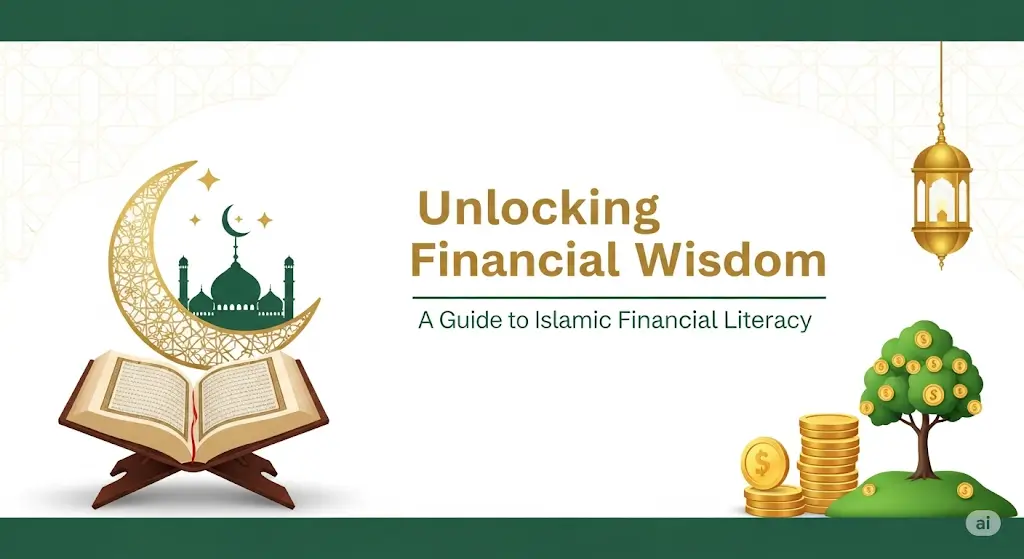In today’s globalized economy, Muslim professionals often find themselves navigating complex workplace cultures while striving to remain faithful to Islamic principles. Islamic workplace etiquette is not a set of rigid rules but a flexible, values-driven approach that harmonizes timeless Qur’anic teachings and Prophetic traditions with modern business expectations. When practiced consciously, this etiquette becomes a powerful catalyst for professional success, ethical leadership, and inclusive collaboration. From punctuality and modest dress to transparent negotiations and inclusive leadership, every interaction offers an opportunity to embody ihsan (excellence) and akhlaq (good character).
Understanding Islamic Workplace Etiquette
Core Ethical Foundations
Islamic workplace etiquette rests on five inter-locking pillars derived from primary sources (the Qur’an and Sunnah) and scholarly consensus:
- Taqwa (God-Consciousness): The inner compass that reminds professionals Allah is ever-aware of intentions, words, and deeds.
- Amanah (Trustworthiness): Honoring contracts, deadlines, confidential data, and implicit promises.
- Adl (Justice & Fairness): Giving every stakeholder—colleagues, clients, suppliers—what is rightfully theirs without bias.
- Ihsan (Excellence): Surpassing minimum requirements and adding beauty, precision, and empathy to every task.
- Shura (Consultation): Collaborative decision-making that values diverse voices and collective wisdom.
Historical Precedents in Early Muslim Commerce
The Prophet Muhammad ﺺ himself was an esteemed merchant known as Al-Amin (the Trustworthy). His wife Khadijah bint Khuwaylid managed a thriving trade caravan, and the Caliphate of ʿUmar ibn al-Khaṭṭāb introduced labor rights, standardized weights, and consumer protection centuries before modern regulations. These precedents illustrate that professional excellence and spiritual integrity have always been intertwined in Islamic civilization.
Key Components of Islamic Workplace Etiquette
Daily Conduct and Time Management
Punctuality as an Act of Worship
In Islam, time is a divine trust. The Qur’an repeatedly swears by time (e.g., ‘By the declining day…’ – Surah Al-ʿAsr), underscoring its sanctity. Practical guidelines include:
- Schedule meetings around prayer times, not the other way around, to maintain spiritual punctuality alongside professional punctuality.
- Adopt the “five-minute buffer rule”: arrive five minutes early to virtual or in-person gatherings to model respect.
- Use the “barakah mindset”: allocate focused 90-minute sprints followed by brief dua or dhikr breaks to rejuvenate intention and productivity.
Mindful Communication
Guarding the tongue is an Islamic imperative. At work, this translates to:
- Speaking good or remaining silent, as per the Prophetic advice.
- Using positive framing in emails (replace “I can’t do this” with “I’ll explore an alternative solution”).
- Refraining from backbiting (ghibah) even under the guise of “venting,” and redirecting conversations toward solutions.
Modest Dress & Personal Presentation
Islamic dress codes emphasize modesty (haya) and professionalism. Rather than a uniform style, the guidelines are:
| Gender | Core Requirements | Modern Professional Examples |
|---|---|---|
| Men | Loose-fitting clothes; cover from navel to knee; no ostentation | Well-tailored suits without silk or gold embroidery; neat beard grooming |
| Women | Loose silhouette; non-transparent fabric; hijab/head covering if applicable | Longline blazers with straight trousers; lightweight jersey hijabs in neutral tones |
Note: Colors and cuts may vary by industry culture, but the guiding principles remain consistent.
Ethical Financial Practices
Prohibition of Riba (Interest) and Fraud
Islam forbids riba (excess or usury) and deceptive marketing. Practically:
- Seek Islamic finance roles (Sukuk structuring, Shariah-compliant fintech) or advocate for qard hasan (benevolent loans) in CSR programs.
- Disclose hidden fees transparently and refuse falsified invoices even under sales pressure.
Zakat & Social Impact Budgeting
Allocate a fixed percentage of net income (usually 2.5% for cash assets) to zakat. Some companies formalize this through payroll deductions to certified NGOs, thereby reinforcing a culture of barakah-infused profitability.
Gender Interaction & Professional Boundaries
Islam promotes respectful interaction between genders while lowering the gaze and avoiding seclusion (khalwah). In hybrid offices, this means:
- When mentoring someone of the opposite gender, choose glass-walled meeting rooms or open spaces.
- Keep virtual meetings on recorded channels to maintain transparency.
- Use inclusive language—e.g., “team” instead of “guys”—to avoid micro-aggressions.
Conflict Resolution through Sulh (Reconciliation)
Islam prioritizes restorative justice over punitive measures. A four-step model inspired by Surah Al-Hujurat (49:9-10) is:
- Pause: Allow a cooling-off period (24–48 hours) before addressing grievances.
- Mediation: Bring in a mutually respected third party (manager, HR, or chaplain).
- Apology & Amends: Encourage sincere istighfar (seeking forgiveness) and tangible reparations.
- Follow-Up: Schedule a brief check-in after one month to ensure sustainable harmony.
Benefits and Importance
Personal Spiritual Development
Adhering to Islamic etiquette deepens taqwa, transforming mundane tasks into acts of worship (ibadah). A finance analyst who refuses insider trading experiences spiritual elevation alongside career longevity.
Enhanced Team Cohesion
Teams led by individuals practicing amanah and shura report 21% higher psychological safety scores in Deloitte’s 2025 Workplace Trust Survey. Trust becomes a tangible asset driving innovation.
Competitive Advantage in Global Markets
Companies with clear ethical stances attract ESG-focused investors. The Global Islamic Economy Report 2025/24 projects the halal economy to reach US$ 3 trillion, indicating enormous market demand for principled professionals.
Legal Compliance & Risk Mitigation
Many Islamic etiquette principles align with international compliance standards (GDPR for data privacy, FCPA for anti-bribery). This dual alignment reduces litigation risk and reputational damage.
Practical Applications
Case Study 1: The Power of Ethical Sales
Ahmad, a software sales executive, noticed his quota-driven colleagues exaggerated product capabilities. Instead of following suit, he created transparent comparison sheets and invited prospects to a 30-day pilot. While his short-term conversion dipped, his one-year client retention rose to 94%, earning him a promotion to Sales Director and a spot on the company’s ethics advisory board.
Case Study 2: Inclusive Leadership during Ramadan
Fatima, VP of Product, introduced “Ramadan Flex Hours” allowing Muslim engineers to start at 6:30 a.m. and finish at 2:30 p.m. She extended the option to non-Muslim parents handling school runs. Result: 18% increase in sprint velocity and higher employee Net Promoter Score (eNPS) from 42 to 71.
Step-by-Step Guide: Implementing Prayer Facilities
- Needs Assessment: Survey staff anonymously to gauge demand.
- Location Scouting: Identify an under-used conference room or wellness area.
- Design Considerations: Include ablution-friendly sinks, Qibla direction signage, and shoe racks.
- Policy Drafting: Specify booking system, cleaning rota, and non-exclusive access (other faiths welcome).
- Launch & Feedback: Hold an open house with HR and an interfaith chaplain to foster understanding.
Negotiation Script Rooted in Islamic Principles
Opening: “Thank you for meeting. Before we begin, I’d like to share that my approach is guided by fairness and transparency, values central to my faith.”
Value Creation: Use integrative bargaining—identify shared interests such as long-term partnership rather than zero-sum gain.
Closing: End with “Bismillah, let’s formalize an agreement that benefits both our organizations and communities.”
Frequently Asked Questions
What is Islamic workplace etiquette in simple terms?
It is a values-based code of conduct rooted in Qur’anic teachings and Prophetic traditions that guides Muslims to act with integrity, fairness, and excellence in professional settings. It covers punctuality, honest communication, modest dress, ethical finance, respectful gender interaction, and collaborative leadership.
How do I balance prayer obligations with tight project deadlines?
Plan sprints around the five daily prayer times using calendar blocking. Inform your team in advance, and utilize flexible work policies. Studies show micro-breaks for prayer can enhance cognitive reset, leading to higher productivity after each prayer.
Can non-Muslim colleagues benefit from these etiquettes?
Absolutely. Principles such as transparency, punctuality, and conflict resolution are universal. Teams implementing Islamic etiquettes often report improved morale and reduced turnover among all employees, regardless of faith.
Is modest dress a barrier to career advancement in Western corporate cultures?
Research by the Institute for Social Policy and Understanding (ISPU) shows modest attire does not hinder advancement if coupled with competence. In fact, distinctive yet professional presentation can enhance personal branding and memorability.
How can I politely decline unethical tasks without jeopardizing my job?
Use the “ethics-forward” script: “I’m uncomfortable with [specific practice] as it conflicts with my values and could expose the company to reputational risk. Could we explore an alternative approach?” Document conversations and seek mentorship from Muslim professional networks such as Muslim Professional Network (MPN) or ISNA Convention Career Fair.
What if my company serves alcohol at networking events?
Arrive early and request a non-alcoholic beverage, positioning yourself near the coffee station to avoid awkward offers. Suggest inclusive alternatives like mocktail bars or experiential networking (e.g., mini-golf, escape rooms) that do not revolve around drinking.
Are there any Islamic apps or tools to support workplace etiquette?
Yes. “Salaam Coach” offers prayer-time reminders synced with meeting calendars. “Zeed Shariah” screens portfolios for halal compliance, while “Tawakkal Planner” integrates Qur’anic affirmations with project management templates.
Conclusion
Islamic workplace etiquette is not a niche set of restrictions; it is a comprehensive blueprint for holistic success that aligns personal spirituality with organizational excellence. By embedding taqwa, amanah,
























Post Comment